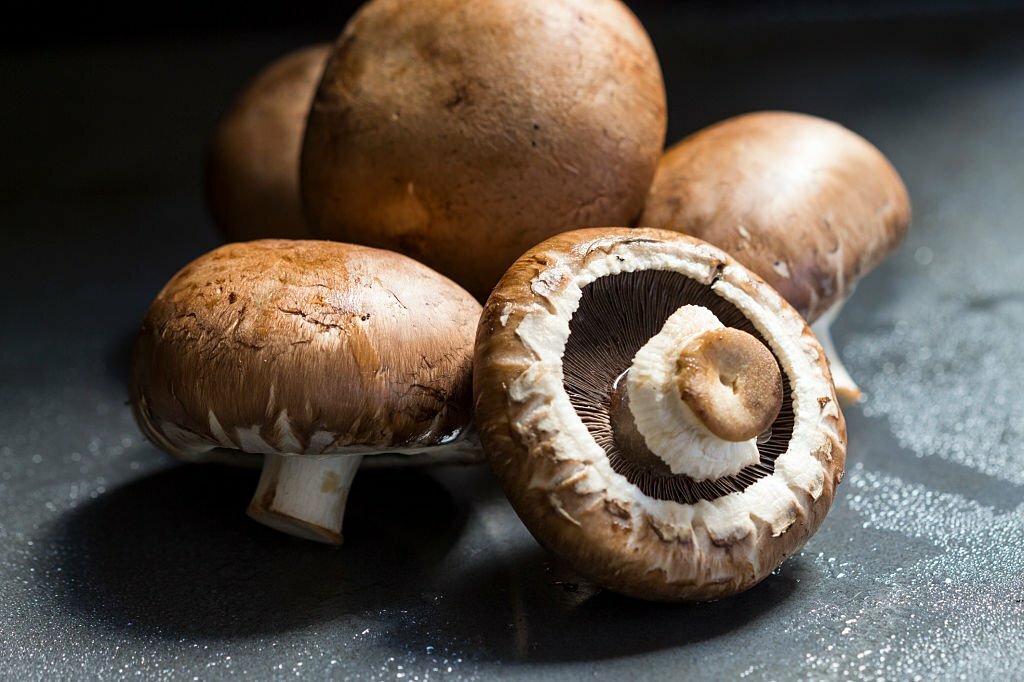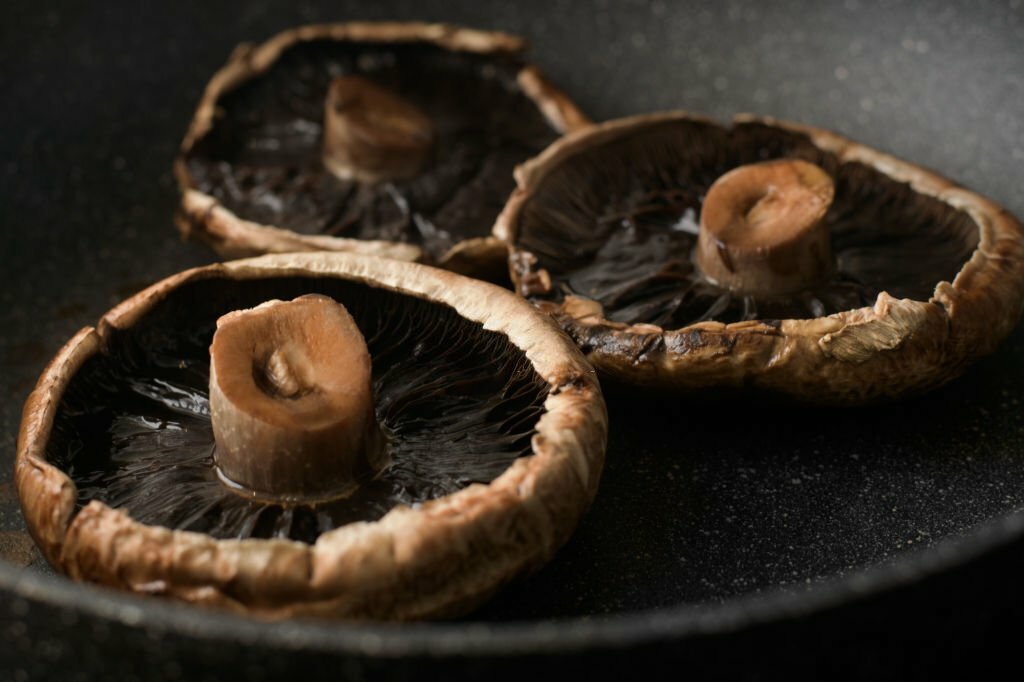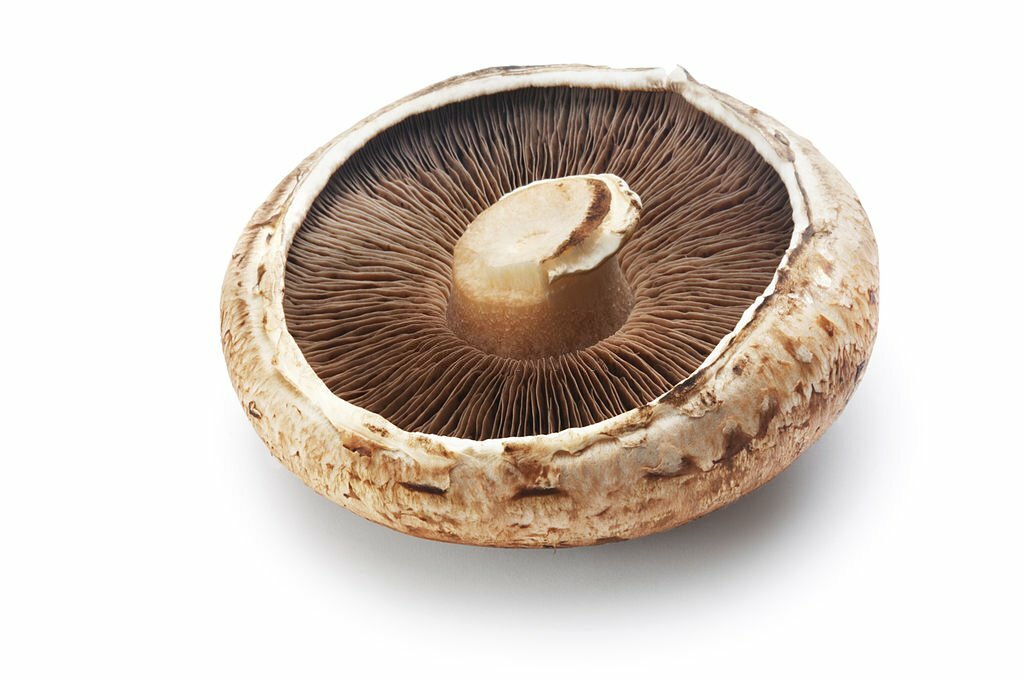Table of Contents
In this article, we will talk about the Positive and Negative Effects of Portobello Mushrooms, Portobello mushrooms offer nutritional benefits like vitamins, minerals, and antioxidants but also have some safety concerns like allergies and pesticide exposure. Learn the pros and cons of portobello mushrooms.
Portobello mushrooms have become an increasingly popular ingredient known for their meaty texture and umami flavor. But what exactly are they, and what health effects do they offer? Here’s a deep dive into the pros and cons of these nutrient-packed fungi.
An Introduction to Hearty Portobello Mushrooms
Portobello mushrooms are a mature form of the humble white button mushroom. Allowed to fully grow and develop, they become large, brown cremini mushrooms. Finally, with even more time to grow their caps open and flatten out, they become the “portobello” we know. Their size and developed flavor make them ideal for vegetarian dishes as a meat substitute. Originating in Italy, portobello mushrooms are now grown and consumed worldwide.
Nutritious and Low-Cal: Portobellos Provide Essential Vitamins and Minerals
One of the biggest benefits of portobello mushrooms is their stellar nutrient profile. While low in calories, they provide important micronutrients like selenium, copper, niacin, riboflavin, pantothenic acid, and more. They are also a source of B vitamins needed for energy metabolism and brain health. As a low-calorie food packed with nutrients and antioxidants, portobellos can be part of a healthy diet.
Potential Powers: Anti-inflammatory, Cholesterol Lowering and More
Research suggests Positive and Negative Effects of Portobello Mushrooms. For example, anti-inflammatory compounds like phenols and polysaccharides may improve chronic inflammation involved in diseases like cancer and arthritis. Animal studies also indicate portobellos may have cholesterol-lowering effects. They provide a source of choline too, an important nutrient for liver and brain function. Additionally, antioxidants in portobellos like ergothioneine may protect cell health and lower oxidative stress in the body. More human research is still needed, but current evidence points to powerful health benefits. Read also Milk Bar Pumpkin Pie Recipe.
Possible Immunity and Gut-Boosting Properties
With their diverse range of nutrients and bioactive compounds, portobello mushrooms may also support immune health. Compounds like beta-glucans can stimulate and modulate the immune system. The prebiotic fiber in portobellos promotes the growth of beneficial Bifidobacterium in the gut microbiome, supporting digestive health as well. This makes them a potential functional food for immunity and gut wellness.

Anti-Cancer Effects Under Investigation
Interestingly, some research indicates that portobello mushrooms may have anti-cancer properties. In lab studies, extracts have shown selective cytotoxic effects against cancer cells while leaving healthy cells unharmed. Specific compounds like conjugated linoleic acid and sphingolipids demonstrate anti-cancer potential. While human clinical trials are still limited, portobellos may eventually have therapeutic use alongside conventional cancer treatments.
Look for Fresh, Firm Mushrooms without Dark Spots
When selecting portobello mushrooms, look for evenly colored, tan caps without dark or wet spots. They should feel heavy and firm without appearing dry or shriveled. If the gills underneath is slightly exposed, that’s fine. Avoid any portobellos with substantial damage or slime. Store fresh portobellos in a paper bag in the fridge for 3-7 days. For longer storage, cook them first then freeze.
Grilling, Roasting, Stuffing: So Many Ways to Cook Portobellos
The versatility of portobello mushrooms makes them a staple in many kinds of cuisine. Their large size lends well to stuffing the caps with cheese, breadcrumbs, meat, and more. They can be simply seasoned and grilled for a satisfying burger substitute. Roasting brings out the umami flavors. Portobellos add meaty texture and richness to pasta, risottos, soups, and stews. Their uses are endless in both savory and vegetarian cooking.
Environmentally Friendly Compared to Meat
Compared to meat production, commercially growing portobello mushrooms have less environmental impact in terms of land and water use. However, some large-scale farming relies heavily on pesticides and synthetic fertilizers with risks of toxicity and groundwater contamination. When possible, choose organically grown mushrooms to avoid chemicals. Portobellos are one of the greener protein choices but buying local, sustainable products is ideal.

| Positive Effects of Portobello Mushrooms | Negative Effects of Portobello Mushrooms |
|---|---|
| Low in calories and fat | Can cause digestive issues in some people |
| Good source of vitamins, minerals, and antioxidants | May interact with anticoagulant medications |
| May boost the immune system | High in purines, which can trigger gout flare-ups in susceptible individuals |
| May reduce the risk of cancer | Can be toxic if consumed raw |
| May improve heart health | Allergic reactions are possible |
| May promote weight loss | Can interfere with the absorption of certain nutrients |
Final Words
In moderation as part of an overall healthy lifestyle, Positive and Negative Effects of Portobello Mushrooms in a low-calorie package. From potential anti-inflammatory and cholesterol benefits to antioxidant and prebiotic compounds, portobellos offer a range of wellness advantages. However, individuals with allergies or on certain medications should exercise caution. As with any food, balance, and variety is key for harnessing benefits without overexposure to any one item. When sourcing portobello mushrooms, look for organic and sustainable options for maximum quality.
FAQs About Positive and Negative Effects of Portobello Mushrooms
Are portobello mushrooms gluten-free?
Yes, portobellos themselves are naturally gluten-free. However, be aware of contamination from seasonings. Check labels and ask about preparation when dining out.
Do portobello mushrooms go bad quickly?
Store properly in the fridge, portobello mushrooms can last around 3-7 days before spoiling. Discard any that are slimy or smell unpleasant. Pre-cooked mushrooms from last month’s frozen.
Can you eat portobello mushrooms raw?
Portobellos can be eaten raw in some dishes, but they are better digested after cooking. Raw mushrooms may cause gas or bloating for some people. It’s generally best to cook portobellos to maximize nutritional absorption.







